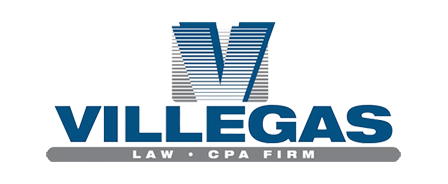Small Business Estate Planning: What You Need To Know
As a small business owner, there are a hundred or more tasks that need your attention at any given time. With so much to consider in the present moment, planning for the far-off future can serve as little other than a passing thought. But, it’s a question worth your consideration–who will see to these tasks once you’re gone? Surely the business you have worked so hard to build and grow shouldn’t cease to exist when you are no longer around to oversee it!
In order to ensure that your small business is handed over to a party with the ability and interest to uphold your excellent standards and take your business into the future, you need to create an estate plan that addresses the needs of your business. While working with an experienced Texas estate planning attorney is the first step in addressing the succession of your business, here are some things that you should know about the process and essential considerations you may encounter along the way!
Wills And Trusts For Small Business Estate Planning
Wills and trusts are the backbone and muscle of any estate plan. These two documents are the most basic and therefore the most essential ones you can create in order to guarantee the proper succession of your business.
Your will designates the person or people who will inherit your business. You want to make sure it will go to someone who is equipped to handle the needs of the business and is familiar with its operations. If you die intestate–without a will–your business will be distributed to your next of kin. If your business is passed to your spouse or children, who need not be of age to inherit it, they might not have the expertise to run the business or see that it’s passed on properly. Designating a proper beneficiary and instruction for your business will ensure its longevity.
You will want to take a living trust into consideration when creating your business estate plan. A living trust is a trust used to hold assets that are designated for one or more beneficiaries. Unlike certain other trusts, it is established when you are still living.You can put your business or the shares of your business in a living trust that will allow your business to bypass probate and go straight to your designated beneficiary. A trust is additionally beneficial because it helps protect your most important assets from lawsuits leveled against your business. Since your business assets and interests are always in flux, you want to make sure you keep your living trust up-to-date so that it reflects the progress of your business and the assets you want to protect. Speak with the experienced estate planning lawyers at Villegas Law Firm in order to address the specifics of your wills and trusts as they pertain to your small business.
Essential Documents For Small Business Estate Planning
In addition to your will and trust, there are a few essential documents you will want to have in place to guarantee a strong succession plan for your business. Speak with your estate planning lawyer about the relevance of these measures to your estate plan.
- Buy/sell agreement: If your business has multiple owners, establishing a buy/sell agreement allows your business partners to buy out your shares of the business.
- Financial power of attorney: If you are ever incapacitated such that you cannot make sound financial decisions–if you are, for example, in a coma or suffering with dementia–establishing financial power of attorney will allow a trusted person whom you designated to make financial decisions related to your business.
- Succession plan: A business succession plan is similar to a will in that it allows you to designate a successor for your business. Not only can you name a person to take control of your business, a business succession plan can also require the sale of your business or contain instructions for its sale. You can also use it to order the dissolution of your company upon your death. A business succession plan can also function for you when you’re alive. It can come into play when you’re incapacitated, much like your financial power of attorney, or when you retire.
Other Small Business Estate Planning Considerations
In addition to these measures, there are some aspects of your business estate plan that you will want to take into consideration. You can discuss their relevance to your business with Villegas Law Firm as well!
- Taxes: Your estate plan can take taxes into consideration to minimize what is owed by your successors. Tax planning is a common estate planning strategy that you can discuss with your attorney and financial advisor.
- Life insurance: In order to make sure that you can support your family after your death, you will want to discuss purchasing the proper life insurance policy. The revenue you generate might not be enough, so a life insurance policy will ensure that your death will not financially devastate your family.
- Disability insurance: Similar to life insurance, acquiring disability insurance will allow you to ensure your family is supported should you ever find yourself incapacitated.
Your small business estate plan is going to be largely dependent on what type of business you have, whether you are the sole owner, and your goals for business succession. Speak with the attorneys of Villegas Law Firm in order to determine what aspects of the small business estate plan are relevant to you and how you want them to be tailored.
Guidance From An Experienced Estate Planning Attorney Is Essential
If you are looking to create a business estate plan, Villegas Law Firm has over 15 years of experience in estate planning and business law. Our lead attorney, Jorge Villegas, is also an experienced CPA, so you can trust him for sound financial advice related to your business plan. Reach out to schedule a free consultation and learn how we can help guide you through the particulars of your small business estate plan.

